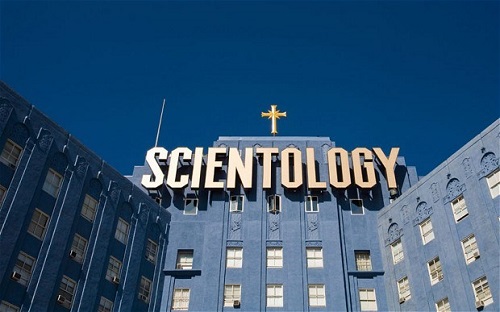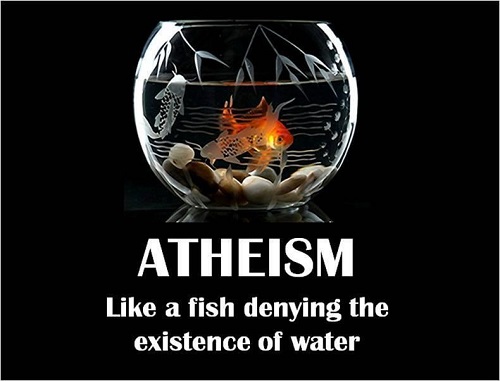The Difference between Scientology and Atheism
Scientology and Atheism has long confounded us because of their similarity which is their lack of belief in the sovereignty of God. Followers of both movement are guided by their own intellect leading them to dwell in the rational accounts of the occurrences in this life. These two have also been banned in most countries. However, this article is not devoted on how they connect with each other. This is about how they differ from one another.
SCIENTOLOGY & ATHEISM AS DEFINED
Scientology is founded by a science fiction writer, L Ron Hubbard. Scientologists believe that created beings developed from the outer space. Their belief led them to the conclusion that comets or other celestial bodies that crashed in the planet Earth bore the life that we now are experiencing.
Atheism, on the other hand, has a history that can be traced back to the ancient Indian philosophers of Confucianism and Buddhism. Atheists explicitly reject the idea of the supreme being religions place their faith in. They believe that there is no such thing as god like Zeus, Vishnu or Yahweh which they claim to be based in proven scientific truths.
SCIENTOLOGY & ATHEISM AS PRACTICED
Hubbard declared Scientology as a new religion that operates ways and means similar to the churches of Islam and Christianity. It is an applied religious philosophy that has a set of beliefs and practices intended to improve the quality of the attributes of life.
The Church of Scientology conducts a sermon usually at 11 in the morning. The minister reads Hubbard’s writing known as the doctrine of Scientology in front of the congregation while they enjoy musical performances. They also have “A Prayer for Total Freedom,” for their enlightenment given by the “author of the universe”. Before members of this church decide to engage in the services, they are required to sign a legal waiver covering their relationship with the church.
In contrast, Atheism is not a religion. Unlike any other religion such as Scientology, atheists do not have any scripture or a set of customs and rituals. They refuse to accept the value of any religious practices performed for a higher deity; because for them, these things are nonessential in living a pragmatic way of life.
BELIEFS OF SCIENTOLOGISTS & ATHEISTS
- On the Potentials of Man
While the Church of Scientology believes that man can reach their full potential as they understand their nature and their true relationship with the universe and the Supreme Being, the atheist believe otherwise. Atheists hold the belief that all things finite and ever-changing depend on nothing, and that the matter brings the mind into existence and that potentials substantiate or make themselves concrete.
- On Life After Death
Scientology consider the human body just like other religions. In that sense, they believe that every individual’s spirit is immortal leaving the body at death. Although the bodily components of a living thing malfunctions, the spirit continues to live and gains another organic structure that is important for growth and survival improved by using Scientology’s methods. Scientologists, however, do not take into regard the existence of heaven or hell and they just focus on the spirit.
The doctrine of Scientology states that salvation is achieved as the engrams and implants are cleared through the process of auditing. These engrams and implants are thought to be the source of misery among humans. As what Richard Holloway states in his writing, salvation happens in the current life because of the eternal return of life after life. With this, they believe that there is no final salvation or damnation; because the individual goes back to life, and he will be held accountable to what comes into being at the present time since he will live with it in the future.
Atheists believe that nothing happens after death. The body decomposes, the things that make up an individual’s whole being ceases to function, and that’s about it. Atheists believe in the reality of death, however, the only afterlife humans can attain is the legacy that they can leave behind. The memories they’ve had with the people they’ve been is for them an afterlife.
Atheism is a lack of belief, which means they do not have any doctrine stating what would really happen to a person as they encounter death. They do not believe that individuals have souls transcending the physical attributes. Atheists claim that as the brain and heart stop to be of use, they will be dead and would cease to exist any longer. As a comfort for fellow humans, atheists encourage every human being to make the best out of their life here on earth and to stop worrying about the things to come after death.
- On the Existence of God
Scientology states that it doesn’t have any set code of beliefs on the existence of God; instead, they make it possible for people to realize their personal discernment of God. There is no well-defined description of God in Scientology. According to Scientology, there is this thing called the “eight dynamic” which scientologists claim to be “God dynamic”. The existence of a deity is affirmed in this religion but its nature is not really elaborated.
It is also explained in the book entitled Science of Survival by L. Ron Hubbard that no one in this world has disproved the statement asserting truth about a Supreme Being. It has been observed by the author that men devoid of their faith in a Supreme Being are deemed to be lesser individuals. Since scientologists do not have any definition of God, members of this church insist that actualizing their enlightenment will help them formulate their logical reasoning about the Supreme Being.
One one hand, the argument of Atheists state that people cannot have a knowledge of a God and that they cannot prove its existence. Atheism maintain their belief on the insignificance of the idea of God and its sovereign power. They debunk every concept of god, especially the personal god of Christianity. For them this god has logically inconsistent qualities such as its being a perfect, immutable, omniscient, omnipresent, omnipotent, transcendent, just and merciful Creator and Ruler of the Universe who became human to save sinners from eternal damnation.
Atheists hold the view that if there is a god, then sufferings and problems in this world could have long been prevented. They argue that if God is perfect then there would be no afflictions that cause the world to be wretched and imperfect. However, all forms of pain and temptations are present in this world, and they have not been kept from happening despite the woes and cries of humanity. This argument by atheists therefore conclude the non-existence of God. They do not consider the idea that God could be using these miseries of life as trials for His people to purpose it for His glory, as Christians believe it to be.
Hence, both scientology and atheism are two different identities as one claim to be another religion while the latter deny the existence of any higher being. Whether the other one is right or wrong, you be the judge based on the scripture or set of standards that you believe has the authority over all.
- The Difference Between Amish and Jewish - April 15, 2018
- Difference Between Western Christianity and Eastern Christianity - April 14, 2018
- Difference Between Bahai and Christianity - April 13, 2018
Search DifferenceBetween.net :
Leave a Response
References :
[0]http://xenu.net/
[1]http://theunfunnytruth.ytmnd.com/
[2]http://answers.yahoo.com/question/index?
[3]http://atheism.about.com/od/aboutatheism/p/atheism101.htm
[4]http://www.infidels.org/library/modern/nontheism/atheism/about.html
[5]http://boingboing.net/2015/03/16/scientology-goes-full-tim-and.html
[6]http://www.sacerdotus.com/2013/01/atheism-is-stupid.html


